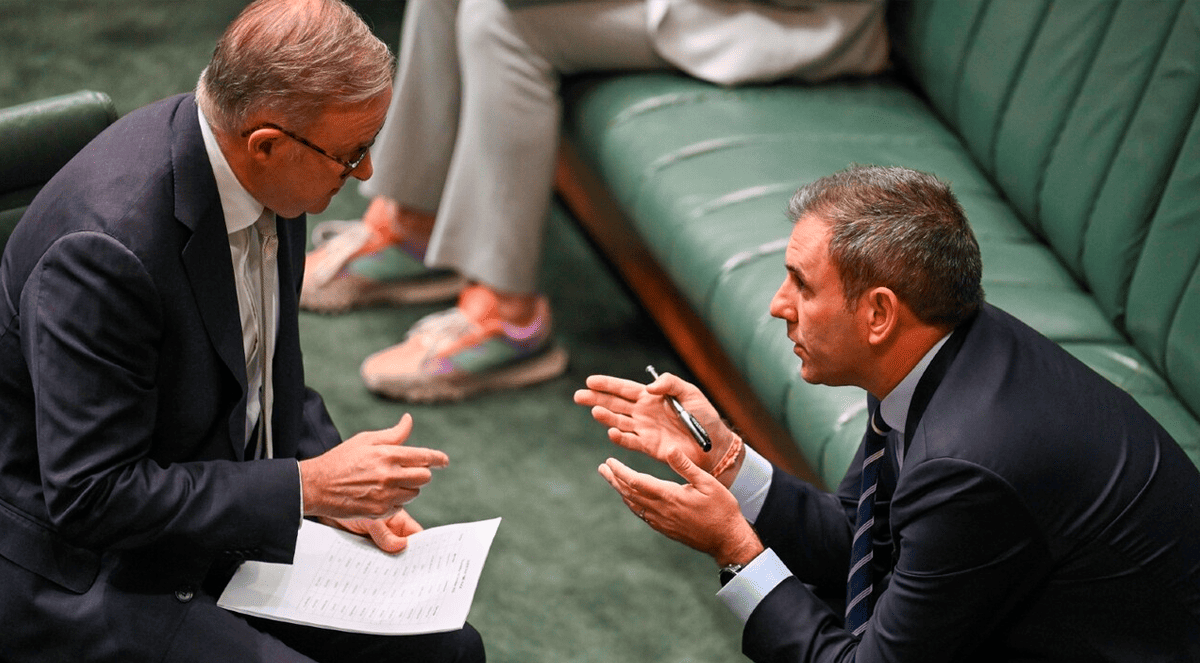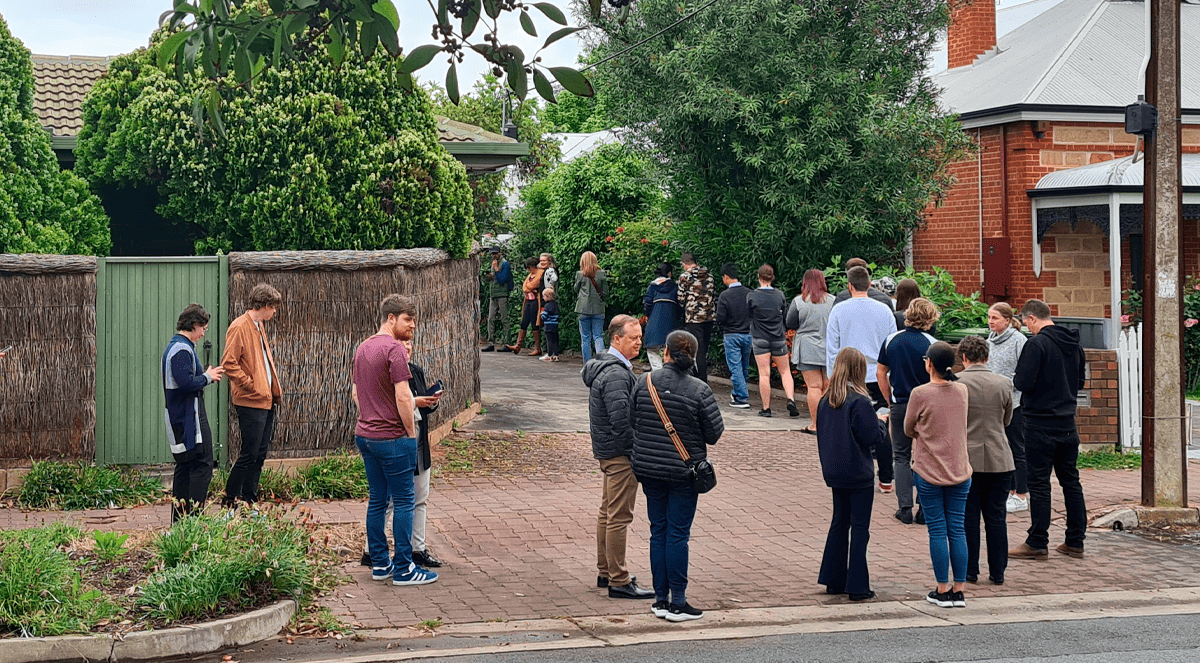Features > Property News & Insights > Investment Strategies
The Power of Residential Property: Building Wealth and Security

KEY POINTS
- Residential property is the leading source of wealth in Australia
- Banks will generally lend to a higher loan-to-value ratio for customers investing in residential real estate
- Residential property is a long-term safe investment, growing in value on average at just under 7% a year since 1960
A few of the most common questions asked by property investors - “Why should I invest in residential property?” and “Aren’t there other ways to make money?”.
Well, yes, there are.
But it will be impossible for you to overlook reasons why residential property is the safest and most reliable way to build wealth in Australia.
1. Get with the strength
If you’re over 45, you might remember when CBA used to be called the “Commonwealth Savings Bank”. They advertised with drawings of an elephant, and their motto was “Get with the Strength”.
They may have changed their livery, logo, and name slightly, but CBA is still the largest bank in Australia.
And property is like that. The numbers don’t lie. CoreLogic puts it simply at the start of each of their Monthly Housing Chart Pack releases.
“Residential Real Estate Underpins Australia’s Wealth”
Under that statement is this simple infographic:

The value of Australian residential property is 3.6 times bigger than the value of all Australian listed shares. This shouldn’t come as a surprise.
Since colonial times, the number one way Australians have built wealth is through property….and that continues today.
2. Get with the value
If you are going to invest in something, you want bang for your buck. You want to outlay as little as possible of your hard-earned money to get a stable return on your investment. Ideally, you want a good balance of income from your assets, plus capital growth.
The key here is leverage. Minimising your contribution, while maximising the value of the asset you can purchase. The best and simplest explanation of why residential property is king comes from author and investor Kevin Lee.
Before he got into property investment, Lee worked for the ANZ Bank. Lee explains that banks will consider three types of security when they’re lending you money: shares, commercial property and residential property.
If you have shares, they’ll offer you what’s called a “margin loan”.
“The margin loan is the highest interest rate out of all three“, Lee explains.
“It’s also got the lowest appeal to the bank. So if you went to any of the major four banks and said “I want to buy some of your shares on a margin loan”, the maximum they’ll lend you is 70%”. The bank is saying it’s only got 70% confidence in its future performance.
The next class of asset a bank will consider is commercial property.
“They’ll lend you 65% - that’s their comfort range, but they will go up to 80% for good clients, on the proviso that you drop that to 70% in the short term,” says Lee.
This leaves residential property, where you can get up to 95% LVR (loan-to-value ratio) from the bank.
So if the bank deems that you can pay back a $1 million loan, they could be prepared to stump up as much as $950,000 of their money to help you buy a residential property. You only outlay $50,000 plus costs (including mortgage insurance) and stamp duty.
Of course, you also have to pay the bank back with interest - but you now have up to 40 years to do that - while your asset appreciates, and if it’s an investment property, it generates cash flow to pay back the loan.
“The banks know their game”, says Lee, “They know how to make money.”
They also know the true value of real estate.
Property is not called “real estate” for nothing. It’s real. You can touch it, you can even live in it. It’s in your control.
Shares are not. They’re pieces of paper purporting to say you own a certain portion of a much larger entity. You are not in control.
If the CEO or a board member of a company is accused of sexual misconduct, fraud or incompetence, the value of the piece of paper you hold in your hands could plummet - even if the fundamentals of the company remain sound.
Remember how Atlassian could do no wrong?
On the 3rd of November 2022, the Australian tech giant, lost nearly 30% of its traded value on Wall Street, when the company admitted its profit outlook wasn’t as good as it had previously spruiked.
That’s the equivalent of losing around 18.5 billion Australian dollars in value in just one day.
Australian property may fall in value, but over the medium term, that’s unlikely. Have you ever heard of a house that lost 30% of its value in one day?
Until the Second World War, home prices in Australia were remarkably stable.
But with the post-war boom, higher immigration and industrialisation, property prices began to grow faster than inflation. In fact, since 1960, Australian property has grown at just under 7% a year.

My advice is to get with the strength, value, security and stability that residential investment property offers.
Stay Up to Date
with the Latest Australian Property News, Insights & Education.




.png?width=292&height=292&name=Copy%20Link%20(1).png)
 SIGN UP FOR FREE NEWSLETTER
SIGN UP FOR FREE NEWSLETTER












%20Scott%20Kuru%20DPU%20141.jpg?width=1920&height=1080&name=The%20Senate%20Just%20Exposed%20Australias%20Biggest%20$80%20Billion%20Housing%20Fraud%20(Inquiry%20Launched)%20Scott%20Kuru%20DPU%20141.jpg)




%20Scott%20Kuru%20DPU136.jpg?width=1920&height=1080&name=Aussies%20Just%20Got%20Hit%20With%20Double%20Taxes%20on%20Everything%20(This%20Has%20Gone%20Too%20Far)%20Scott%20Kuru%20DPU136.jpg)


%20Scott%20Kuru%20DPU%20133.jpg?width=1920&height=1080&name=JUST%20IN%20Something%20Major%20Just%20Flipped%20Australia%E2%80%99s%20Property%20Market%20for%202026%20(No%20One%20Saw%20This%20Coming)%20Scott%20Kuru%20DPU%20133.jpg)


.jpg?width=1920&height=1080&name=Rental%20Prices%20At%20Record%20Highs%20And%20Vacancy%20Rates%20At%20All%20Time%20Lows%20(New%20Data%20Reveals).jpg)
%20%20DPU%20EP%2014.jpg?width=1920&height=1080&name=Investors%20Shutting%20Out%20First%20Home%20Buyers%20(Investors%20At%20Record%20Highs)%20%20DPU%20EP%2014.jpg)

.jpg?width=1920&height=1080&name=Darwins%20Property%20Market%20Boom%20or%20Dangerous%20Gamble%20(REVEALED).jpg)

.jpg?width=1920&height=1080&name=The%20RBA%E2%80%99s%20Rate%20Cut%20Could%20Explode%20House%20Prices%20(Here%E2%80%99s%20Why).jpg)








.jpg?width=1920&height=1080&name=Warning%2c%20You%20Might%20Be%20Facing%20Higher%20Taxes%20Soon%20(1).jpg)




.png?width=1920&height=1080&name=Rate%20Drops%20Signal%20BIGGEST%20Property%20Boom%20in%20DECADES%20(1).png)

.jpg?width=1920&height=1080&name=Labor%20vs%20Liberal%20These%20Housing%20Policies%20Could%20Change%20the%20Property%20Market%20Forever%20(1).jpg)
.jpg?width=1920&height=1080&name=QLD%20Slashes%20Stamp%20Duty%20Big%20News%20for%20Investors%20%26%20Home%20Buyers%20(1).jpg)
.jpg?width=1920&height=1080&name=Trump%20Just%20Slapped%20Tariffs%20%E2%80%93%20Here%E2%80%99s%20What%20It%20Means%20for%20Australia%20(1).jpg)
.jpg?width=1920&height=1080&name=Federal%20Budget%202025%20More%20Debt%2c%20No%20Housing%20%E2%80%93%20Here%E2%80%99s%20What%20You%20Need%20to%20Know%20(1).jpg)
.jpg?width=1920&height=1080&name=Australias%20Housing%20Crisis%20is%20about%20to%20get%20MUCH%20Worse%20(New%20Data%20Warns).jpg)
%20(1).jpg?width=1920&height=1080&name=Australias%20RENTAL%20CRISIS%20Hits%20ROCK%20BOTTOM!%20(2025%20Update)%20(1).jpg)
%20(1).png?width=1920&height=1080&name=Is%20Adelaide%20Still%20a%20Good%20Property%20Investment%20(2025%20UPDATE)%20(1).png)
.jpg?width=1920&height=1080&name=RBA%20Shocks%20with%20Rate%20Cuts!%20What%E2%80%99s%20Next%20for%20Property%20Investors%20(1).jpg)
%20(1).jpg?width=1920&height=1080&name=I%20Predict%20The%20Feb%20Rate%20Cut%20(My%20Price%20Growth%20Prediction)%20(1).jpg)
.png?width=1920&height=1080&name=Why%20Property%20Prices%20Will%20Rise%20in%202025%20Market%20Predictions%20(1).png)
.jpg?width=1920&height=1080&name=Why%20Investors%20Are%20Choosing%20Apartments%20Over%20Houses%202%20(1).jpg)
.jpg?width=1920&height=1080&name=Why%20Rate%20Cuts%20Will%20Trigger%20A%20Property%20Boom%20(1).jpg)
.jpg?width=1920&height=1080&name=Retire%20On%202Million%20With%20One%20Property%20(Using%20SMSF).jpg)
.jpg?width=1920&height=1080&name=4%20Reasons%20Why%20You%20Should%20Invest%20in%20Melbourne%20Now%20(1).jpg)
%20(1).jpg?width=1920&height=1080&name=Old%20Property%20vs%20New%20Property%20(Facts%20and%20Figures%20Revealed)%20(1).jpg)
%20(1).jpg?width=1920&height=1080&name=Will%20The%20New%20QLD%20Govt%20Create%20a%20Property%20Boom%20or%20Bust%20(My%20Prediction)%20(1).jpg)
%20Scott%20Kuru%20(1).jpg?width=1920&height=1080&name=Inflation%20Hits%20Three-Year%20Low%20(Will%20RBA%20Cut%20Rates%20Soon)%20Scott%20Kuru%20(1).jpg)
.jpg?width=1920&height=1080&name=How%20to%20Buy%20Investment%20Property%20Through%20SMSF_%20The%20Ultimate%20Guide%20(1).jpg)
.jpg?width=1920&height=1080&name=Victoria%20Slashes%20Stamp%20Duty%20Melbourne%20Set%20to%20Boom%20Scott%20Kuru%20(1).jpg)
.png?width=1571&height=861&name=Are%20Foreign%20Buyers%20Really%20Driving%20Up%20Australian%20Property%20Prices%20(1).png)
.jpg?width=1920&height=1080&name=The%20Single%20Factor%20That%20Predicts%20Property%20Growth%20Regions%20(1).jpg)
%20Scott%20Kuru%20(1).jpg?width=1920&height=1080&name=My%20Prediction%20On%20Rates%20%26%20Negative%20Gearing%20(Market%20Crash)%20Scott%20Kuru%20(1).jpg)

-1.png?width=1920&height=1080&name=Major%20Banks%20Cut%20Rates%20Will%20RBA%20Follow%20Suit%20(Sept%20Rate%20Update)-1.png)
%20Scott%20Kuru-1.png?width=1920&height=1080&name=Rate%20Cut%20Coming%20What%20New%20Zealands%20Move%20Means%20for%20Australia%20(Sept%20Prediction)%20Scott%20Kuru-1.png)
%20(1).jpg?width=1920&height=1080&name=Buy%20when%20the%20interest%20rates%20are%20high!%20(Why%20you%20must%20buy%20now!)%20(1).jpg)
.jpg?width=1920&height=1080&name=Carms_Revised%20Taxes%20Due%20Aug%209%20YT%20Thumbnail02%20(1).jpg)
.jpg?width=1920&height=1080&name=Carms_Too%20Little%20Too%20Late%20Aug%207%20YT%20Thumbnail01%20(1).jpg)









.jpg?width=1920&height=1080&name=Carms_Rate%20Drop%20In%20July%20Jun%2010%20YT%20Thumbnail02%20(1).jpg)
.jpg?width=1920&height=1080&name=Carms_Own%20a%20Property%20V6%20Jun%205_YT%20Thumbnail%20(1).jpg)









.png?width=1920&height=1080&name=Artboard%201%20(3).png)






.jpg?width=1920&height=1080&name=YT%20thumbnail%20%20(1).jpg)

